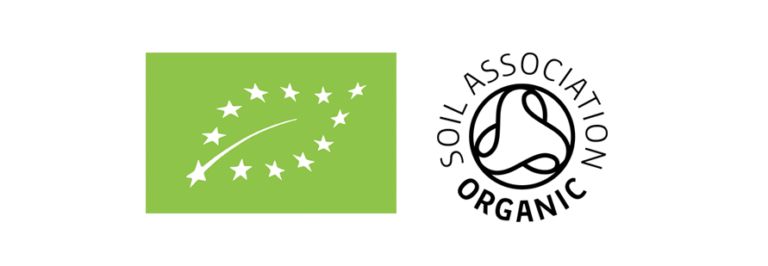Assurance schemes

Share this step
Alongside the legislation that covers food production from farm to fork, assurance schemes are voluntary arrangements that guarantee conformity of production to set standards. In addition, assurance scheme bodies can work with regulatory bodies to help implement relevant policies. Various schemes exist for different types of foods and address different concerns but they provide independent assessment that is designed to reassure the consumer and build trust. We compare some of the assurance schemes below.
What sort of schemes are there?
You’ll examine four common schemes whose logos appear on food packaging in the UK. Each scheme operates in a slightly different way and the logo demonstrates to the consumer that the food product has met a unique set of standards (food safety, animal welfare, environment, traceability or a combination of these) and can provide producers with a route to market for their products. Compare and contrast these schemes from their descriptions below:
Organic (EU) and The Soil Association

Several approved bodies in the UK control the use of “organic” on food products. An approved list may be found on Department for Food and Environment Food & Rural Affairs (DEFRA) website .
The Soil Association is the UK’s leading organic certification body with over 70% of certifications. Over 3500 farm businesses around the world have the soil association certification
Either of these logos may be used upon certification to the Soil Association Organic Standards. The logos demonstrate to the consumer that the product is authentic (ie organic), is produced in adherence to set organic farming practices, and is traceable back to its origins.
Red Tractor

Established in 2000 by Assured Food Standards (AFS), the Red Tractor is the largest food assurance scheme, which covers the entire food chain (from farm to pack) in the UK. It is a not-for-profit limited company, operating independently of stakeholder groups. Most major UK retailers, many branded manufacturers and food service operators participate in the scheme.
It recognises dedication to high standards with respect to the source of the food (traceability), the safety of the food, animal welfare and environmental protection. Using of the Red tractor logo on products demonstrates that the business/producer has been licensed by AFS. This license is issued upon auditing of the business, to confirm that the high set standards on traceability, food safety, animal welfare and environmental protection have been met.
The Red Tractor logo, featuring the Union Jack flag, provides assurance to consumers that their concerns have been addressed, for instance, with respect to local produce (grown, processed and packed in the UK) or the farm assurance, which ensures that farmers’ have a steady market for their produce. The logo can be found on packaged meats, dairy, fruits, vegetables (including salads), cereals, flours and sugar products. Products with multiple ingredients may still display the logo if the main ingredient constituting not less than 65% of the product, is from an assured chain. The purchasing behaviour of conscientious consumers could be influenced by the logo.
Linking Environment And Farming (LEAF)

A global charity that assures consumers of high standards in sustainability. It offers an environmental assurance certification for farmed products. LEAF Marque independently inspects businesses before certification to ensure adherence to high environmental standards. It adopts the nine Farm Management (IFM) principles, which combine traditional and modern methods to address all aspect of the farm business, from planning through to soil, crop, animal management and proper utilisation of energy and resources, to community engagement.
The LEAF Marque Standard typically complements other farm assurance schemes such as the Red Tractor Assurance. For instance, in the UK all LEAF Marque certified farms must also be Red Tractor certified. Farms in over 35 countries around the world are LEAF Marque certified.
RSPCA Assured

The high standards in animal welfare are the focus of the Royal Society for the Prevention of Cruelty to Animals (RSPCA). Food products with the RSPCA Assured logo should typically be also Red Tractor certified, to be able to cover a broader spectrum. Under the RSPCA Assured guidelines, food which meets the set standards could be produced within Europe. The assurance scheme addresses indoor and outdoor systems of animal rearing; ensuring that standard operating procedures for slaughter are adhered to and adequate sustenance, space, facilities and monitoring are provided. With the logo, the welfare of all farmed animals and their produce; including beef and dairy cattle, chickens, pigs, sheep, turkeys, and fishes, are assured.
The schemes all have associated websites so consumers can explore the different standards and as these four examples show, not all assurance schemes are the same. Some have standards that relate to quite different aspects of sustainable and ethical production. For example, Compassion in World Farming analysed the standards of the major farm assurance schemes in England and Scotland against a range of criteria and concluded all schemes could improve on some aspects of animal welfare.
There are many different assurance schemes, some are internationally recognised, and provide consumers with assurances of production methods used that relate to a broad range of topics including social aspects of sustainability such as fair trade.
In addition to assurance scheme logos on food packaging, some countries provide public health advice guidelines for healthy diets that include aspects of sustainable production. See this example from Sweden.
Would this kind of advice be useful? What further information do consumers need to be able to trust that their food has been produced in a sustainable and ethical way? Would national guidelines that integrate sustainability be useful?
Share your comments below.
Share this
Trust in Our Food: Understanding Food Supply Systems

Trust in Our Food: Understanding Food Supply Systems


Reach your personal and professional goals
Unlock access to hundreds of expert online courses and degrees from top universities and educators to gain accredited qualifications and professional CV-building certificates.
Join over 18 million learners to launch, switch or build upon your career, all at your own pace, across a wide range of topic areas.
Register to receive updates
-
Create an account to receive our newsletter, course recommendations and promotions.
Register for free







